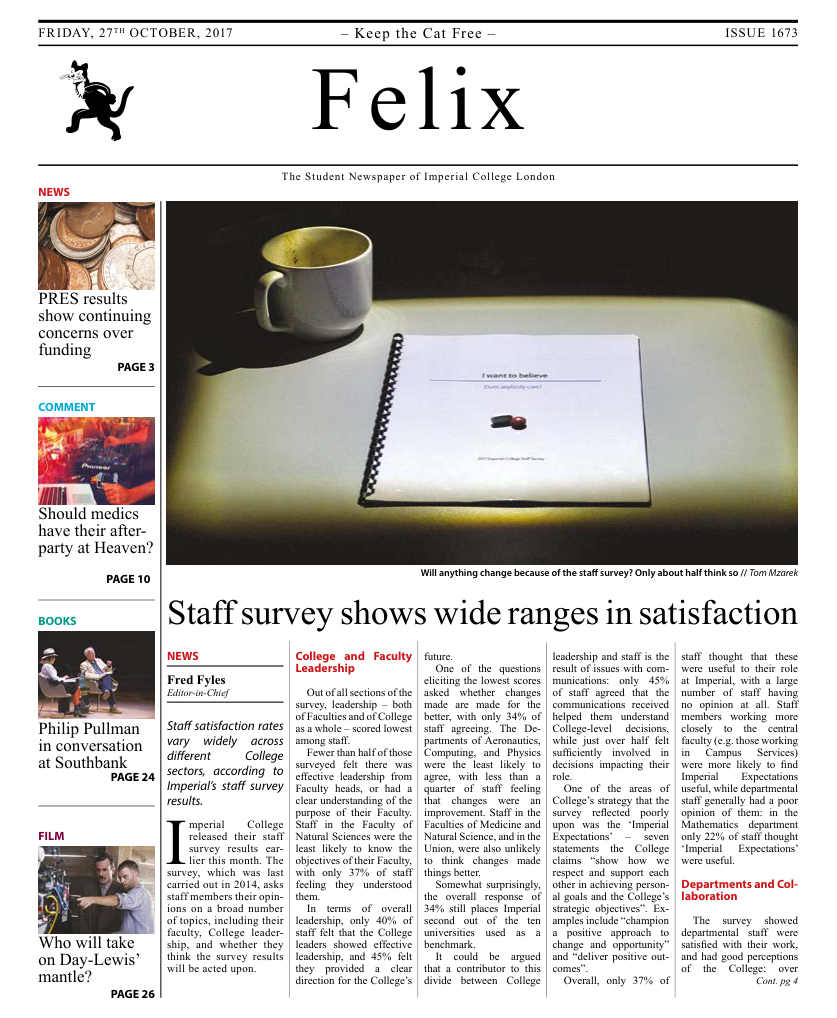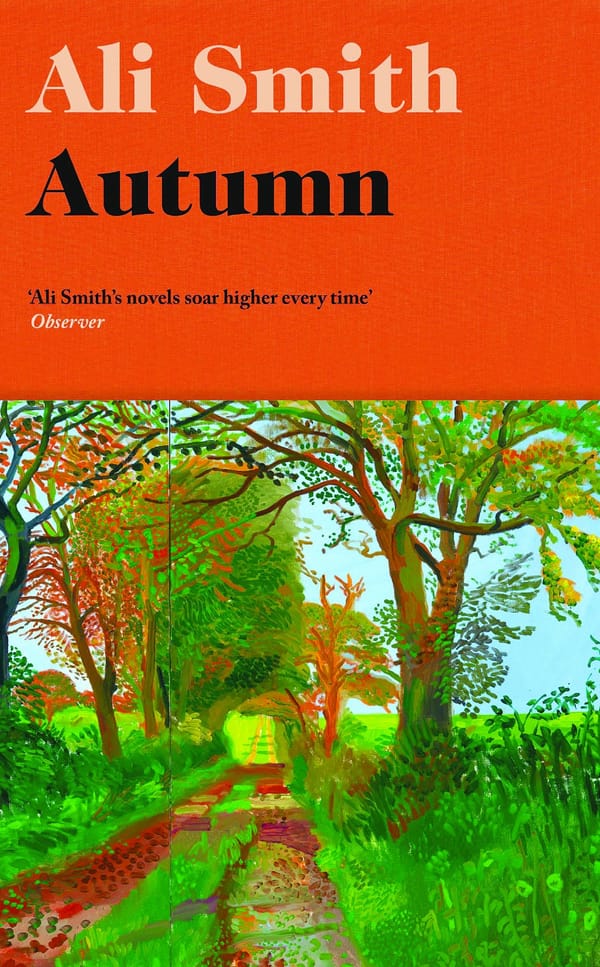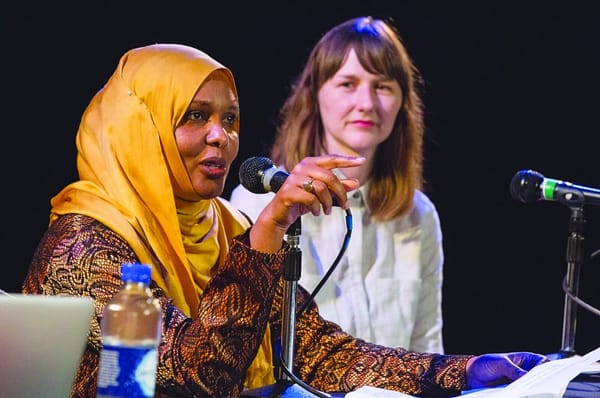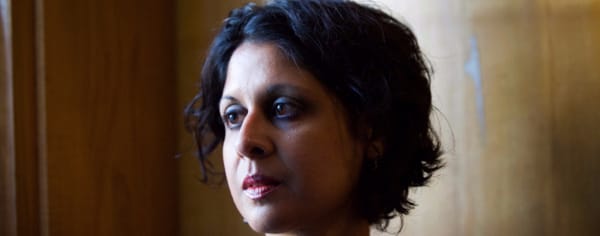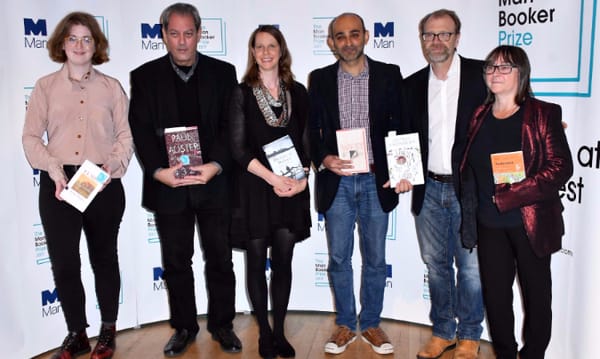Hope amid darkness in Philip Pullman’s new series
Best-selling author Philip Pullman graces the London Literature Festival with the launch of his new novel, the prequel to His Dark Materials.

Known for his trilogy His Dark Materials, a fixture of many of our teenage bookshelves, Pullman is no stranger to the best-seller charts. La Belle Sauvage is the much-anticipated first volume of The Book of Dust, which Pullman discussed with BBC broadcaster and fellow author Cerys Matthews at a launch event at the Southbank Centre. The evening began with a discussion between the two, followed by a reading of an extract by Pullman, and the discussion was then opened to the audience.
In this new volume, the theory of dust from His Dark Materials makes a reappearance after 17 years, in a world where dark matter and consciousness intertwine. The author or, as he prefers, storyteller, combined famous theories of physics, complex politics, and religion in a world of witches, daemons, and armoured polar bears.
This exciting new trilogy is the unexpected prequel to His Dark Materials. The original was famously known for its beloved heroine, Lyra Belacqua, who makes a comeback in the new series as a baby. This latest novel has a more elementary – or as Philip described it, “watery” – feel which is tangled with the issues of the environment and inequality in a fiercer tone than before.
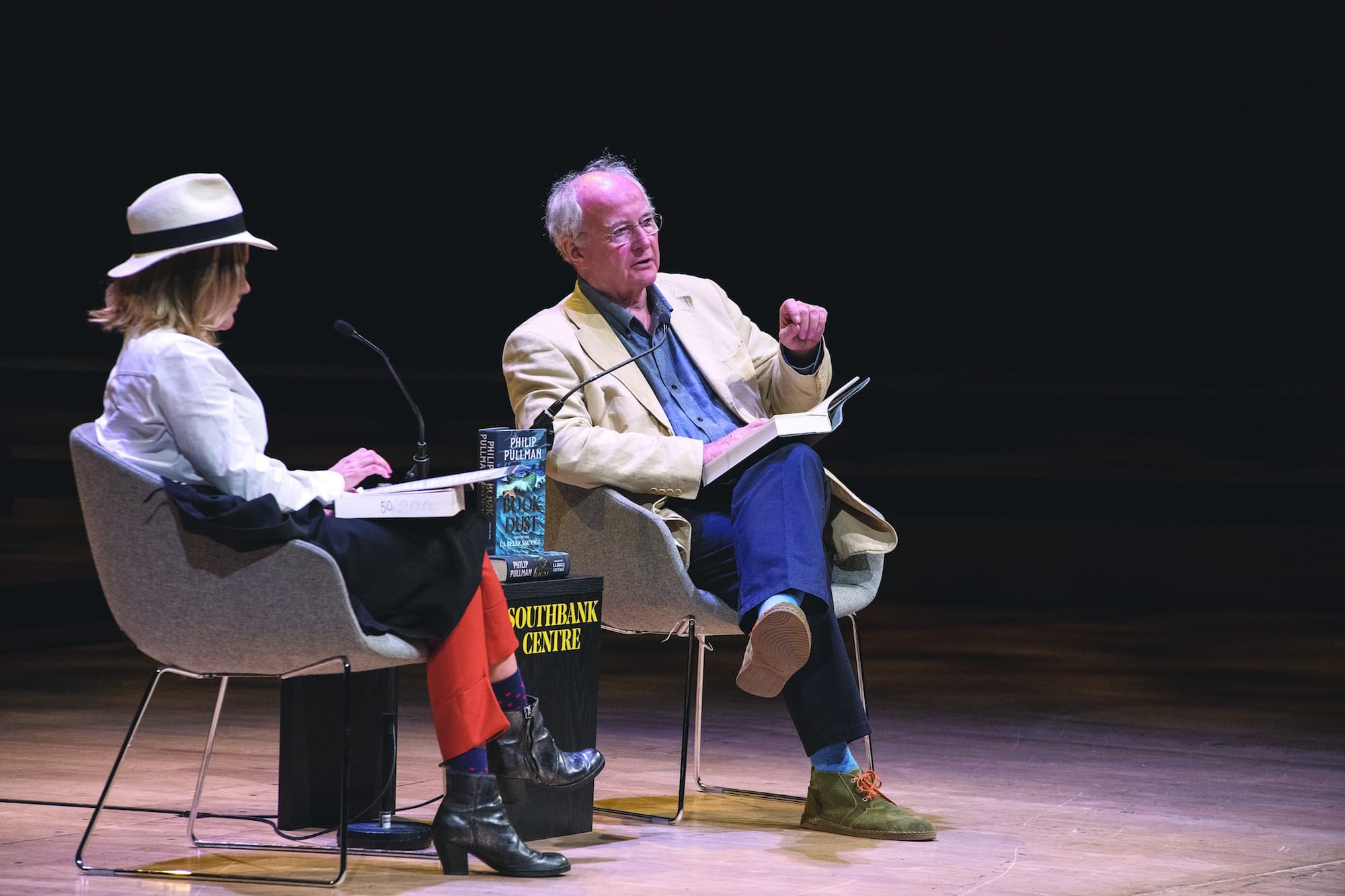
The fact that it was his birthday made the evening’s atmosphere more magical as the audience’s singing echoed in the hall. The viewers’ awe was palpable when Philip read an extract of La Belle Sauvage. Discussions ranged from Philip’s “waywardish” university days to his journeys to the Arctic within the pages of books of the Bodleian Library, at Oxford University. We find how his roots in Oxford inspired a range of settings for His Dark Materials and La Belle Sauvage as well as the influence of the more exotic scenes from books he’s read.
The most intriguing part of Pullman’s discussion was the use of rhythm in his sentences and how he needs silence in order to focus on the rhythms of following sentences. In addition, he also touched on children’s style of learning and reading – he believes imagination begins when children are read stories by their parents or guardians, which encourages the seeking of adventures and ideas within books. He expressed disappointment at the current educational system, which ranks children and forces youngsters to form opinions and express them aloud to the teacher – opinions and analysis of poems should remain within the heart of the child, he said, so they can look back and remember the naturality of their own opinion. His stand on the “original sin”, which is mentioned in his previous trilogy, is that it is “almost blasphemous” to call it a sin, because knowledge and the seeking of it is what makes us human. A round of applause followed with bouts of cheering.
“The latest novel is tangled with the issues of the environment and inequality”
The evening’s discussion touched on a wide range of topics and themes; was the darker tone due to the growing cynicism of the author? Does it reflect on the growing cynicism of adults in the modern world? When asked this, he replied that adults don’t become more cynical, only more aware, but amongst the darkness of it all there is always hope – interspersed in the darkness of the book, just like in our reality.
Audience’s questions also sparked riveting discussions where two in particular caught the author off guard, which he seemed to appreciate: one spectator questioned how the integration of the sexualisation of young people through social media and wider access to porn on the internet would work in the world of magic born from the innocence of children; another asked about the integration of disability, particularly deaf people, and how they would communicate with their daemons. Though the answer to both of these questions was “I don’t know”, he commented on how his books were written in an age where the internet did not exist. As for disability, perhaps daemons could use sign language for communication.
If you’re as big as a fan as I am it would be good to know that Pullman disclosed his daemon to us as a “shabby, knock-kneed, feathers missing, dust-covered, old raven”. His second book of The Book of Dust is written, but has yet to be edited. In the meantime, La Belle Sauvage will keep us all occupied.
Part of London Literature Festival at the Southbank Centre

